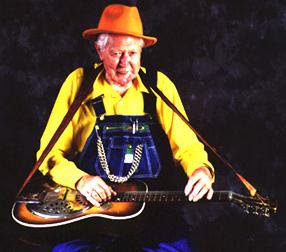Although he's not necessarily the most renowned
rockabilly artist, Alvis Wayne was an early contributor to the scene. Born in
Puduka, TX, on December 31st, 1937, Wayne was part of a large family, and grew
up very poor during the infamous Great Depression era. Alvis Wayne’s first love
was music. He discovered country and
blues via the radio, especially such artists as Jimmie Rodgers, the Mississippi Blue Yodler, Hank Snow, Eddy Arnold, and Bob Wills & His Texas Playboys.
blues via the radio, especially such artists as Jimmie Rodgers, the Mississippi Blue Yodler, Hank Snow, Eddy Arnold, and Bob Wills & His Texas Playboys.
He worked on his aunt’s and uncle’s farm pulling corn to
earn the money to buy his first guitar. He was 10 years old. He learned to play
rhythm guitar and later drums and bass. The
High School that Alvis attended as a teenager was Sundeen High in Corpus
Christi, although a fairly bright student, he had no interest in school
whatsoever and he eventually dropped it to go out on the road.
When he was 20, he had joined a group called Tony Wayne
& the Rhythm Wranglers, who issued a lone single in 1957. The group split
up shortly thereafter, but Wayne continued to play with others leading to his
own recording contract with Westport Records. In 1958, Wayne recorded an
album's worth of tunes (although no full-length album was ever issued), and one
of the tracks, "Don't Mean Maybe Baby," was a hit in South Texas
where it held the number one spot for six weeks knocking off a certain Mr.
Presley. He later toured south Texas
working five shows with Elvis. He worked
package shows from the Louisiana Hayride with Bob Luman, Johnny Horton, and
Slim Whitman.
In 1960 Wayne, then 22, joined the Air Force and spent
the next four years training as a mechanic and obtaining his GED (General
Education Diploma). Even while serving the country, though, Wayne continued
performing when he could. He was stationed at
Warner Robins air force base, which was about eighteen miles out of Macon, Georgia. While he was there he teamed up with Jimmy Harris and his band for a live, Saturday afternoon broadcast on WCRY radio and also played in Harris’s nightclub on evenings and weekends.
Warner Robins air force base, which was about eighteen miles out of Macon, Georgia. While he was there he teamed up with Jimmy Harris and his band for a live, Saturday afternoon broadcast on WCRY radio and also played in Harris’s nightclub on evenings and weekends.
After being discharged from the AF, he worked many jobs
including Car Sales, Braniff International and many different construction
crafts from carpenter to Superintendent. Although he worked at many
professions, his first love was music. Nevertheless, Wayne could see he was
heading towards a dead end professionally and his personal life was
tumultuous—he was married and divorced three times between the ages of 18 and
22
While stationed in Macon, Georgia he won a talent contest
and was offered a contract with Capitol Records. Unfortunately the Air Force would not let him
sign it and after he was discharged no one seemed interested in his music. He played country music over the next several
years and cut a few more records but could never get the momentum he had in the
50’s with Rockabilly music. Over the next few years he devoted himself to
raising a family but he always had a band on the side to fulfil his need to
entertain.
In September 1994, Perry Williamson of Pink & Black
Records issued the artist’s first long playing album. With the help of Ronny
Weiser and John Beecher the LP gathered all of the Westport and Rollin’ Rock
material.
 A cult following began to grow (especially in the U.K.)
due to his underappreciated '50s singles and in 1999 he received a call from a
producer in England. He was asked if he would be interested in playing a show
in England. He said yes and went on to perform shows in England, Sweden,
Germany and Finland. In the United
States he performed at Viva Las Vegas Rockabilly Weekender, New Orleans, and
Green Bay, Wisconsin.
A cult following began to grow (especially in the U.K.)
due to his underappreciated '50s singles and in 1999 he received a call from a
producer in England. He was asked if he would be interested in playing a show
in England. He said yes and went on to perform shows in England, Sweden,
Germany and Finland. In the United
States he performed at Viva Las Vegas Rockabilly Weekender, New Orleans, and
Green Bay, Wisconsin.
Wayne experienced a late-life career resurgence when
Rockin’ Ronnie Weiser, founder of Rollin’ Rock Records, tracked him down in
Texas. Weiser then produced and released two acclaimed Alvis Wayne albums,
2000’s
 Rockabilly Daddy and 2001’s I’m So Proud of My Rockabilly Roots, that
brought the artist some measure of recognition denied him in his younger years.
Rockabilly Daddy and 2001’s I’m So Proud of My Rockabilly Roots, that
brought the artist some measure of recognition denied him in his younger years.
 Rockabilly Daddy and 2001’s I’m So Proud of My Rockabilly Roots, that
brought the artist some measure of recognition denied him in his younger years.
Rockabilly Daddy and 2001’s I’m So Proud of My Rockabilly Roots, that
brought the artist some measure of recognition denied him in his younger years.
During 2008 due to complications from being stung by fire
ants, he had to have part of his left leg removed (according to his nephew on Myspace). Later when
Wayne was diagnosed with liver cancer, emails came from all over the world
brightening his last few days. He passed
away July 31, 2013 at the age of 75 at his home in Bacliff, Texas.
(Edited from Deeproots mag, AllMusic & Carnes obit)


















































